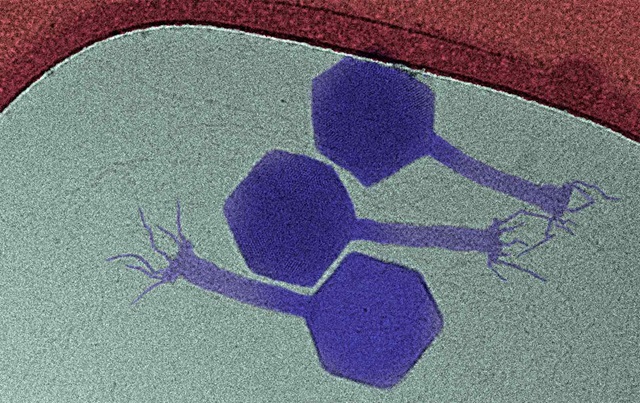New Bacteriophage Paride Awakens and Eliminates Dormant Bacteria
- Normal Liver Cells Found to Promote Cancer Metastasis to the Liver
- Nearly 80% Complete Remission: Breakthrough in ADC Anti-Tumor Treatment
- Vaccination Against Common Diseases May Prevent Dementia!
- New Alzheimer’s Disease (AD) Diagnosis and Staging Criteria
- Breakthrough in Alzheimer’s Disease: New Nasal Spray Halts Cognitive Decline by Targeting Toxic Protein
- Can the Tap Water at the Paris Olympics be Drunk Directly?
Breakthrough Discovery: New Bacteriophage Paride Awakens and Eliminates Dormant Bacteria, Potentially Countering Superbugs
- Should China be held legally responsible for the US’s $18 trillion COVID losses?
- CT Radiation Exposure Linked to Blood Cancer in Children and Adolescents
- FDA has mandated a top-level black box warning for all marketed CAR-T therapies
- Can people with high blood pressure eat peanuts?
- What is the difference between dopamine and dobutamine?
- How long can the patient live after heart stent surgery?
Breakthrough Discovery: New Bacteriophage Paride Awakens and Eliminates Dormant Bacteria, Potentially Countering Superbugs
In harsh environments, such as exposure to antibiotics, bacteria enter a dormant state, ceasing growth and division until conditions settle.
This dormancy makes it challenging to completely eradicate them, leading to an increasingly severe antibiotic resistance problem that could potentially render basic infections deadly.

Scientists have discovered a new phage called Paride (shown in purple) that attacks dormant bacteria Fabienne Estermann & Enea Maffei / ETH Zurich
Bacteria frequently enter a dormant state to evade elimination by antibiotics or other threats, posing a challenge for treatment. Now, scientists have identified a virus capable of attacking these dormant bacteria, proving effective in eradicating infections when combined with medication.
An alternative treatment involves using viruses called bacteriophages to eliminate bacteria, but this approach faces efficacy challenges, mainly due to the bacteria’s ability to remain dormant until the danger has passed.
Researchers at the Swiss Federal Institute of Technology in Zurich hypothesized the existence of a bacteriophage capable of attacking bacteria in this dormant state. After years of exploration, they finally discovered such a bacteriophage and named it Paride. The research team found that Paride could infect Pseudomonas aeruginosa, a bacterium responsible for various common infections like pneumonia and urinary tract infections, and increasingly resistant to antibiotics.
Crucially, Paride can achieve this even when the bacteria are in a dormant state, although scientists are yet to determine the exact mechanism. Currently, they suspect that the bacteriophage first employs molecular “keys” to awaken the bacteria and then hijacks the bacteria’s reproduction mechanism for replication.
The research team tested Paride’s antibacterial effects in laboratory culture dishes containing Pseudomonas aeruginosa. Even in the dormant state, the bacteriophage could independently eliminate 99% of the bacteria. While this seems effective, the remaining 1% might regroup and pose a problem. However, when bacteriophage therapy was paired with an antibiotic called meropenem, the combination could clear the entire bacterial population.
Meropenem itself has no effect on dormant bacteria but effectively attacks active bacteria. It is possible that Paride awakens all bacteria, kills most of them, and the antibiotic then eliminates the remaining bacteria.
In subsequent experiments, researchers injected bacteriophage, antibiotics, or both drugs into mice with chronic infections. Each treatment alone was not particularly effective, but the combined use showed a significant inhibitory effect on bacteria.
Lead author Enea Maffei stated, “This indicates that our discovery is not just a laboratory illusion but may also have clinical relevance. This is the first bacteriophage described in the literature that can attack dormant bacteria.”
The research team acknowledges the need for further work to understand how Paride kills its dormant victims, but this marks a hopeful step toward enhancing bacteriophage therapy’s effectiveness and addressing the looming crisis of superbugs.
This study was published in the journal “Nature Communications.”
Breakthrough Discovery: New Bacteriophage Paride Awakens and Eliminates Dormant Bacteria, Potentially Countering Superbugs
(source:internet, reference only)
Disclaimer of medicaltrend.org
Important Note: The information provided is for informational purposes only and should not be considered as medical advice.



